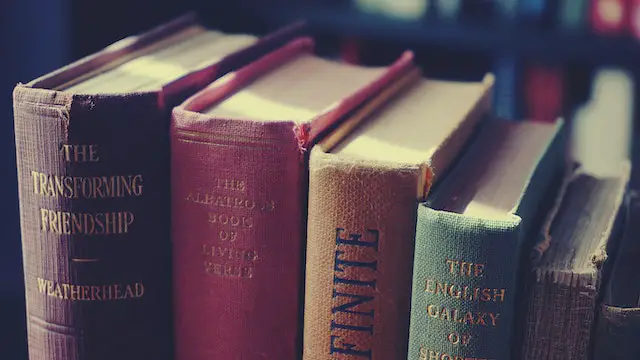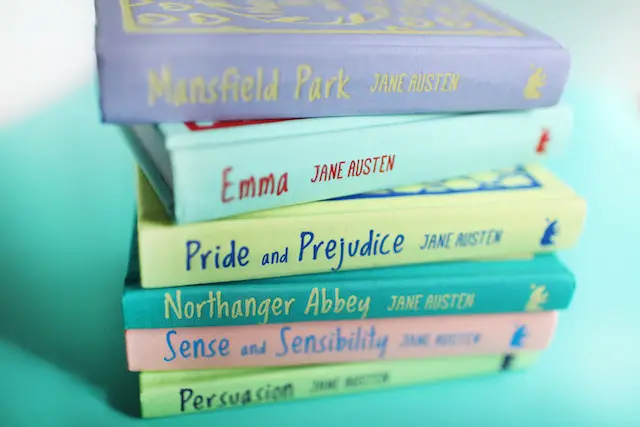Language is a system of communication that allows people to convey meaning and ideas, while literature is a form of artistic expression that uses language as a medium to create works of art that explore human experiences and emotions.
The definition of literature
(Photo by Suzy Hazelwood)

Literature, is any written work that is valued for its aesthetic or intellectual content. This includes works of fiction, non-fiction, poetry, and drama. Unlike language, which is used to communicate information, literature is primarily meant to be enjoyed for its own sake.
The definition of language
(Photo by Hannah Wright on Unsplash )

Language is a system of symbols with arbitrary meanings that are used to communicate. These symbols can be in the form of words, sounds, or gestures, and are often combined to form complex utterances. The meaning of an utterance is determined by its context and purpose.
The difference between literature and language
Literature and language are related but distinct concepts.
Language is a system of communication that allows people to convey meaning and ideas through the use of words, symbols, and gestures. It is the means by which we express our thoughts, feelings, and experiences. Language includes elements such as grammar, syntax, vocabulary, pronunciation, and writing systems.
Literature, on the other hand, refers to written or spoken works that have artistic value and often explore themes such as human experiences, emotions, and social issues. Literature can be fictional or non-fictional, and it includes various genres such as poetry, drama, fiction, and non-fiction. Literature can be analyzed for its literary techniques, themes, and its cultural and historical significance.
In summary, language is a system of communication, while literature is a form of artistic expression that utilizes language to create meaning and convey ideas.
How literature and language are used together
When we talk about literature, we are referring to a body of work that has been written by an author. This could be a novel, a collection of short stories, or even a poem. Language, on the other hand, is the actual words that are used to communicate. It is the system of communication that we use to express our thoughts and ideas.
Literature and language are often used together in order to create meaning. The author of a piece of literature will use language in order to convey their message to the reader. They will choose their words carefully in order to create an effective piece of writing. The reader, in turn, will use their own understanding of language to interpret the meaning of the text.
Language is constantly evolving, and new words are created all the time. Authors must be aware of these changes in order to keep their writing up-to-date. They may also choose to use archaic or obsolete words in order to create a specific effect. It is important for readers to be aware of these changes in language in order to fully understand what they are reading.
The importance of literature and language
Language and literature are of paramount importance for human communication and cultural understanding. Here are some reasons why:
- Communication: Language is the primary means of communication among human beings. It allows us to express our thoughts, feelings, and ideas to others. Literature, on the other hand, provides a medium for artists and writers to express their experiences, imagination and perspective to the world.
- Cultural Understanding: Language and literature allow us to learn about different cultures and traditions. Through literature, we can gain insights into the values, beliefs, and experiences of people from different backgrounds and time periods.
- Cognitive Development: Language and literature also contribute to cognitive development. Reading and engaging with literature can improve vocabulary, reading comprehension, critical thinking, and creativity.
- Historical Perspective: Literature provides a window into the past, allowing us to understand how people lived, thought, and felt in different times and places. It can also provide insight into the social, political, and economic factors that shaped the past and continue to shape the present.
- Personal Enrichment: Language and literature can provide personal enrichment and enjoyment. Reading literature can be a source of inspiration, comfort, and entertainment.
In short, language and literature play a crucial role in our lives, enriching our understanding of the world and enhancing our ability to communicate and connect with others.
What is Linguistics?
Linguistics is the scientific study of language. It involves the analysis of language structure, meaning, and usage. Linguists apply their knowledge of linguistics to solve problems in communication, education, and other fields.
Linguistics is a diverse field that encompasses many different subfields, such as phonetics, phonology, morphology, syntax, semantics, pragmatics, and sociolinguistics. Each subfield focuses on a different aspect of language. For example, phonetics studies the physical properties of sound waves used in speech; phonology studies the way sounds are organized and used in languages; semantics studies the meaning of words and sentences; pragmatics studies how context affects meaning; and sociolinguistics studies how languages vary depending on social factors such as region, ethnicity, and gender.
The study of linguistics can be applied in many practical ways. For example, linguists may work with speech therapists to help people with speech disorders communicate more effectively. They may also work with educators to develop more effective methods for teaching languages. Additionally, linguists may use their knowledge to help businesses design better user interfaces or to create new artificial intelligence applications.
What do you study in literature?
In order to study literature, you will need to learn about the different genres and forms that exist within it. This includes works of fiction, such as novels and short stories, as well as non-fiction texts, such as plays, poetry, and essays. You will also need to develop close reading skills in order to analyze the way in which these texts are structured and the meanings that they convey. Furthermore, you will need to be familiar with the historical context surrounding the production and reception of literary works.
Can literature exist without language?
No, literature cannot exist without language. Language is the tool that writers use to create literature. It is the medium through which literary works are communicated. While it is possible for someone to understand the general idea of a literary work without understanding the language in which it is written, they would not be able to appreciate the nuances and subtleties of the work. In order to fully understand and appreciate literature, one must be proficient in the language in which it is written.
Featured Image By – Photo by Leah Kelley








